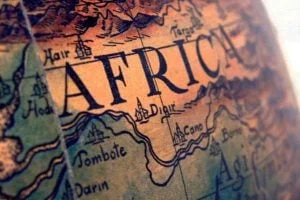Africa’s growing economic strength and vast investment opportunities took center stage during a recent African Development Bank Group (AfDB) mission to Yokohama, Japan, from 20–22 August 2025. Addressing Japanese businesses at the “Economic Partnership in Indian Ocean–Africa” Forum, AfDB Chief Economist Prof. Kevin Chika Urama emphasized that Africa’s appeal lies in its youthful and expanding labor force, abundant renewable energy resources, and largely untapped agricultural potential. He noted that by 2050, Africa will account for one-third of the global labor force, possess 45% of the world’s renewable energy potential, and host an agricultural market worth more than USD 1 trillion.
Prof. Urama highlighted Africa’s impressive growth resilience, with the continent maintaining an average GDP growth rate of 4% over the past two decades, despite multiple global shocks. More than 20 African countries are growing above 5%, and 15 are among the world’s fastest-growing economies in 2025. He urged global investors to recognize Africa as a smart investment destination with strong fundamentals for long-term growth. The forum, organized by Nikkei Newspaper, Japan’s Ministry of Economy, Trade and Industry (METI), and the Ministry of Foreign Affairs (MOFA), served as a platform to deepen dialogue on trade and economic collaboration between Japan and Africa.
The AfDB Chief Economist also participated in a High-Level Policy Dialogue on “Harnessing the Potential of Africa – Strengthening Partnerships between MDBs, Japan’s DFIs, and the Private Sector.” A major highlight of this session was the signing of a Memorandum of Understanding for the sixth phase of the Enhanced Private Sector Assistance (EPSA6) initiative between the AfDB and the Japan International Cooperation Agency (JICA). This new phase aims to mobilize up to USD 5.5 billion in joint financing over three years starting in 2026, to strengthen Africa’s private sector and accelerate sustainable growth.
At a side event on debt management co-hosted by the International Monetary Fund (IMF) and Japan’s Ministry of Finance, Prof. Urama presented the Bank’s public finance reform efforts, including the Public Finance Management Academy, the Debt Management Forum for Africa (DeMFA), and the Africa Debt Managers Initiative Network (ADMIN). He emphasized that Africa’s debt discussions should move beyond transparency and sustainability to focus on debt productivity — ensuring that borrowed funds are effectively used to generate economic returns and growth.
In addition to policy dialogues, Prof. Urama held bilateral discussions with Mr. Nobumitsu Hayashi, Governor of the Japan Bank for International Cooperation (JBIC), to explore opportunities for collaboration in infrastructure development, climate finance, and private sector engagement. The AfDB delegation to Japan, led by Dr. Kevin Kariuki, Vice President for Power, Energy, Climate, and Green Growth, also attended the Ninth Tokyo International Conference on African Development (TICAD9). The conference gathered delegations from 49 African nations, including 33 heads of state and government, alongside over 10,000 participants from international organizations, the private sector, and civil society.
During TICAD9, Japanese Prime Minister Shigeru Ishiba launched the “Economic Region Initiative of Indian Ocean–Africa,” a strategic effort to strengthen trade and investment ties between Africa, India, and the Middle East. The conference’s focus on private sector–driven growth echoed the AfDB’s Africa Investment Forum (AIF), which aims to transform investment commitments into tangible projects. The launch of new initiatives, coupled with the EPSA VI agreement, reaffirmed Japan’s critical role as a long-term partner in Africa’s economic transformation.
Reflecting on the mission, Prof. Urama stated that TICAD9 served as a powerful platform to highlight Africa’s economic resilience, enhance dialogue on debt and governance, and deepen partnerships with Japan and other global stakeholders. He reaffirmed the Bank’s commitment to building stronger economic ties that will unlock Africa’s full investment potential and accelerate sustainable development across the continent.







